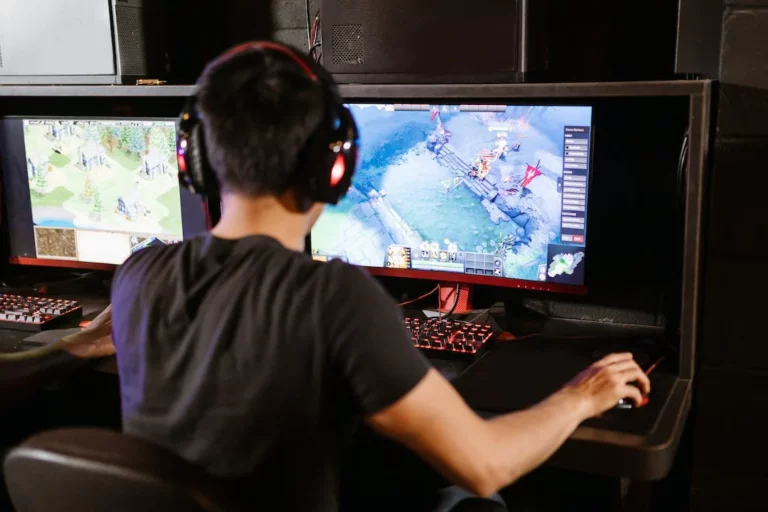Music has always played a crucial role in gaming, enriching the player experience and creating emotional connections with the game world. From dramatic orchestral scores to catchy tunes, the right music can transport players to different realms, heighten suspense, and evoke a wide range of emotions. As technology continues to advance, game developers have started exploring the potential of AI-generated music to enhance their game soundtracks.
AI-generated music refers to music compositions created by machine learning algorithms. These algorithms analyze vast amounts of musical data, including existing compositions, to generate original music that aligns with specific styles, moods, or genres. This technology presents an exciting opportunity for game developers to have access to a virtually limitless library of music that can be customized and tailored to their games.
The emergence of AI-generated music has sparked curiosity and enthusiasm within the gaming industry. Developers are now exploring how this technology can revolutionize the way game soundtracks are composed and integrated into gameplay. By harnessing the power of AI-generated music, game developers can create dynamic, immersive, and memorable soundtracks that enhance the player experience.
Benefits of AI-Generated Music in Games
Music plays a vital role in shaping the player experience in video games. It sets the mood, creates emotional connections, and enhances immersion within the game world. With the emergence of AI-generated music, game developers now have access to a powerful tool that can revolutionize game soundtracks and offer a range of benefits. Let’s explore the advantages of incorporating AI-generated music in games:
1. Versatility and Customization: AI-generated music provides game developers with an extensive repertoire of musical styles, genres, and moods. From epic orchestral compositions to ambient electronic beats, AI algorithms can generate music that aligns perfectly with the game’s atmosphere, environments, and narrative. This versatility allows for a tailored and immersive audio experience, elevating the overall quality of the game.
2. Dynamic Soundtracks: Traditionally, game soundtracks have followed a linear structure, playing pre-composed tracks on a loop. However, AI-generated music introduces the possibility of dynamic soundtracks that adapt in real-time to the player’s actions and gameplay events. AI algorithms can analyze in-game data, such as the player’s location, progress, or interactions, and generate music that seamlessly adjusts to match the evolving gameplay. This dynamic approach adds a layer of responsiveness and engagement, immersing players further into the game world.
3. Cost-Effectiveness: Creating original music for games can be a costly endeavor, especially for indie developers or small studios. AI-generated music offers affordable or even royalty-free licensing options, significantly reducing the financial burden. Many AI-generated music platforms provide subscription models or one-time licensing fees, allowing game developers to access a vast library of pre-composed tracks without breaking the bank. This cost-effectiveness opens doors for more developers to enhance their games with high-quality music.
4. Efficiency in Production: Game development is a complex and time-consuming process, and the creation of a unique, cohesive, and captivating soundtrack can be a challenge. AI-generated music platforms can help alleviate some of these challenges by providing a vast library of pre-composed tracks. Game developers can browse through various genres, moods, and musical elements, quickly finding pieces that fit their vision. This efficiency in production saves time and resources, allowing developers to focus on other aspects of the game’s development.
Legal and Copyright Considerations
As game developers explore the use of AI-generated music in their games, it is crucial to understand and address the legal and copyright considerations associated with this technology. Respecting intellectual property rights and ensuring legal compliance not only protects developers from potential legal issues but also fosters a fair and ethical environment within the gaming industry. Here are some key points to consider:
1. Ownership and Licensing: When utilizing AI-generated music in games, it is important to understand the ownership rights and licensing agreements associated with the AI-generated music platforms or libraries. AI-generated music platforms typically grant licenses for the use of their music, specifying the permitted usage, duration, and any attribution requirements. Familiarize yourself with the terms and conditions of the licensing agreements to ensure that you have the appropriate rights to use the AI-generated music in your game.
2. Copyright Infringement Risks: AI-generated music is trained on vast datasets, including existing compositions. While the AI algorithms generate new music, there is a possibility of unintentional similarities to copyrighted works. To mitigate the risk of copyright infringement, it is advisable to thoroughly review the AI-generated music for any potential similarities to existing copyrighted music. If you come across any questionable instances, consult with legal professionals specializing in intellectual property law to ensure compliance.
3. Attribution and Credits: Just as it is customary to credit human composers and musicians in game soundtracks, it is important to give appropriate attribution to the AI system responsible for generating the music. Check the licensing agreements or terms of use provided by the AI-generated music platform to determine the specific requirements for attributing the AI system. Properly crediting the AI system acknowledges its contribution to the music and promotes transparency within the gaming community.
4. Legal Compliance in Distribution: When distributing your game, ensure that you comply with the licensing agreements and usage rights associated with the AI-generated music used in the game. Depending on the licensing terms, you may need to obtain specific licenses for commercial distribution or make adjustments to comply with any restrictions imposed by the AI-generated music platform. Adhering to these requirements protects your game from legal complications and upholds the integrity of the AI-generated music ecosystem.
Credits:
image source – imgur.com

